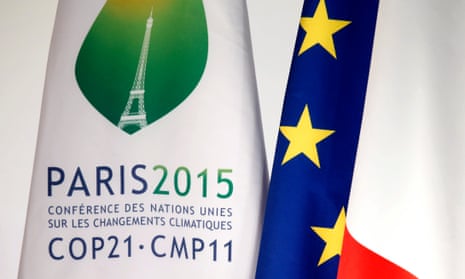Sweden, Germany and France are the only European countries pursuing environmental policies in line with promises made at the Paris climate conference, according to a new ranking study.
The UK is in fifth position in the table which assesses policy actions taken by EU states to meet Europe’s pledge of a 40% cut in carbon emissions by 2030.
Poland, the Czech Republic, Spain and Italy are judged to be propping up the league, due to their support for forestry and carbon accounting dodges that weaken the greenhouse gas reduction effort.
“EU politicians portraying themselves as climate leaders should put their money where their mouth is by closing loopholes in the EU’s key climate law and pushing for more ambition,” said Femke de Jong, the EU policy director for Carbon Market Watch, a campaign group that co-drafted the EU Climate Leadership Board survey.
The ranking was compiled using ministerial statements and official documents submitted to the European commission, and was then cross-checked with country representatives.
It focuses on behind-the-scenes lobby forays mounted by EU countries in negotiations over an “effort sharing regulation” to cover the 60% of European emissions that come from transport, buildings, agriculture and waste management.
These fall outside the bloc’s flagship Emissions Trading System (ETS) which allocates tradable pollution permits to heavy industry.
Several countries have tried to gain wiggle room in the talks by pushing for measures such as a later (and higher) baseline for measuring their CO2 cuts, or greater use of forestry credits to meet the EU’s climate goal.
“Relying on credits from planting trees is troublesome as the carbon removals can be reversed at any time when trees are cleared and burned,” the report says. “Emissions from fossil fuels, on the other hand, stay in the atmosphere for centuries.”
Other “loopholes” identified in the paper include a handout of 100m surplus ETS allowances, worth an expected €2bn, to nine countries to help them meet their emissions obligations on paper.
When these were taken into account, only Sweden’s record was judged compatible with the Paris goals.
Carlos Calvo Ambel, a spokesperson for Transport & Environment, the survey’s other co-sponsor, said: “The great majority of countries want to rig the law with loopholes so they can continue business as usual. Either Europe follows the lead of Sweden, Germany and France, which are going in the right direction, though not far enough, or we should forget about our climate leadership.”
An underlying problem confronting EU policy-makers is the profound, costly and rapid nature of the changes needed to limit global warming to 2C, as agreed at Paris.
Carbon emissions would have to halve every decade between now and 2050, with land use emissions following the same trajectory, according to a report published earlier this week.











Comments (…)
Sign in or create your Guardian account to join the discussion